Kraków 2019-04-25
The inspiration to write this article was one photo, which has been posted on our website for several years. We present them at the end of the article. Our reader, Mr Sławomir Jóźwik, took notice of this photo, who in this picture recognized his father Franciszek Jóźwik. In the family album, Mr. Sławomir has a photo of the same event, taken from a different camera, from a different angle and in a much better quality.
Let's start from the beginning.
Air training in Poland
Military Technical School of Aviation in Boernerów in Warsaw. 1945-1949
In Zamość in Poland, from the autumn of 1944, the Polish Air Force Military School functioned. The school was headed by the Muscovites. The location of the school was not favorable for the communists. The population of the Zamość region and the Lublin region were openly hostile to the new occupant. Also cadets-students were quick to realize that this School is not Poland at all. Many students deserted individually or even collectively. At the same time, the personal overflow of the school and social and living conditions were very difficult.
That is why orders were given; No. 019 / org of the ND WP from 1946-01-22 and No. 015 of the Commander of the Polish Army Aviation dated 1946-01-31. As a result, in February 1946, the school regiment in Zamość was disassembled. The individual faculties of the school were transferred to Dęblin (basic and combat aviation training) and to Warsaw to Boernerowo (Bemowo) (training of mechanics). Already in September 1945, the transfer to Boernerowo began.
The process of organizing the school in a new place lasted a long time. From July 1945 to April 1946. The school occupied the barracks after the pre-war artillery regiment. Brick buildings were from the 30's of the 20th century and were relatively new. Although the barracks were partially destroyed, the conditions were better here than in Zamość. The soldiers' chambers were equipped with beds with bedding. Classes were conducted in two training buildings. A makeshift square was created on which airplanes and models were gathered.
The end of World War II resulted in the demobilization of the majority of soldiers. But in military education the process was reversed. CCCP aimed to consolidate communist power in Poland. The communists did not want the return of Polish aviation specialists from the West, because they had "inappropriate" socio-political patterns. That is why the Communists trained their own commanding staff.
On September 25, 1945, another (third) group of 104 mechanics and handymen was promoted. First time in Boernerowo. In October 1945, 239 students completed the course. On December 22, 1945, the course was completed by 226 students, including the first group of photo-technicians.
1946
On January 6, 1946, the course was completed by the sixth group of students (226 people), 33 of whom were officers. It was the second officer's promotion in school history. The act of promotion was made by Lieutenant General Władysław Korczyc.
At the same time, the decision was made to shorten the education in WTSL to 11 or 22 months. The departure of some Soviet personnel to the CCCP forced them to be replaced by Polish officers. The missing staff was decided to obtain, by training non-commissioned officers with internships, on 5-month courses. These courses have been organized since January 1946, and in fact lasted very briefly. Even just 7 days. In 1946, specialists for aircraft were trained; Po-2, Jak-9, Pe-2, Il-2, Il-10, Tu-2, C-47, Li-2.
On March 18, 1946, the commandant was appointed Polish officer Colonel Bernard Adamecki. (born 1897 - murdered by communists 1952-08-07).
On May 4, 1946, the training program was changed at the school. The school has gone on to "training time of peace." The training cycle was extended and its level increased. The changes were led by the new Commandant of the school, who remembered perfectly well the system of pre-war training.
On May 16, 1946, the third promotion took place, 38 graduates. At the same time, the name of the school changed to the Technical School of Aviation of the Polish Army. Demobilization of some soldiers resulted in gaps in the cast of regiments. Therefore, the commander of the Polish Army Aviation Command No. 0121 of 1946-10-05, ordered to shorten the training time, mechanics to 15 months, and younger specialists to 4 months. The number of students in TSL WP was increased to 1 867 people.
1947. Technical School of Aviation
From the spring of 1947, the school returned to supplementary courses for specialists and their promotion for officers. The courses were organized depending on the needs. In April 1947, the school moved to a new full-time no. 20/78 (permanent cast of 385 people, 680 trained mechanics, 300 young mechanics trained). There was also a change of the name of the school (without the inscription of the Polish Army). On July 13, 1947, another officer's promotion took place. 5 graduates obtained the degree of porem. On October 26, 1947, another group of 129 people completed the course, and 5 received an officer's promotion. In December 1947, the school gained full staffing. The staff was 404 people. Variable state 870 people. Of the 180 officers, 12 were still soviets. The didactic base was constantly improved. There were more and more scientific aids, often performed at the school by listeners. The Polish Aviation Command highly evaluated the work and engagement of its commander, colonel pilot Bernard Adamecki.
1948
At the end of 1948, Colonel Bernard Adamecki was dismissed from his position in an immediate manner. It seemed strange, because the Colonel enjoyed the recognition of his superiors and subordinates and was to be promoted to the general.
It was a time when the communists were already strong and no longer threatened with counter-revolution. There was no longer only Poland but the PRL. Communists removed people who had a different worldview with impunity. And it is not important that they devoted their strength and health to the new Poland with great commitment. In addition to the attacks of the communist secret police on specific persons, systems of repression against the entire nation were created.
The limits of social affiliation were defined in relation to candidates for military schools. According to the Order of the Minister of National Defense from 1949-04-30, 60% of qualified candidates should come from the working class, 30% from the peasant and only 10% from the working intelligentsia.
Colonel Bernard Adamecki was accused of spying and plotting against the PRL. During the brutal interrogations he was tortured. Beaten to unconscious, he confessed to alleged guilt. He tried to commit suicide in prison, unable to accept his role. On May 13, 1952, he was sentenced to death, along with other officers, even though the prosecutor applied for a long prison sentence. The sentence was executed on August 7, 1952, in the Mokotów prison.
Franciszek Jóźwik
The arrest of Colonel Bernard Adamecki had its wide consequences for the students of the school. A thorough investigation was carried out at the school. Not only officers, but also listeners found the communist magnifying glass. Among the listeners was also Franciszek Jóźwik, who, like many others, was accused of favoring the conspiracy.
Franciszek Jóźwik came from a patriotic and religious family. His three uncles were Catholic priests. One of them - Józef - was a prisoner / exile on the famous Solovetsky Islands. In 1932, Józef was mentioned, along with several other priests, for some Soviet spies.
During the Russian Empire, the Solovetsky Islands were the place where political prisoners were deported, and in Soviet Russia - the first labor camps. From 1923, the largest concentration camp of the Ogpu of the 1920s operated on the islands. Polish Catholic priests were sent to the "Solovetsky Islands".
Franciszek Jóźwik graduated from the school in Boernerów, but he was not admitted to the promotion. He was not admittedly and fortunately arrested. But all these accusations were too much for a young man. He wanted to leave the Polish People's Army, but he was not allowed. He was transferred to the penal battalion near Warsaw. Here, they simply perished over him as an enemy of the people. There were all-day forced exercises in the field. Gears in full gear and gas masks. Crawling in the mud and on tank gravel with pieces of glass. In his uniform he had torn holes on his knees and elbows. The skin was wounded to the bones, and the wounds bled.
One day Franciszek could not stand it. He got amok and attacked an officer who supervised these "classes". He beat the man so much that he landed in the hospital. He was to be imprisoned for that act, but the officers interceded after Franciszek. It ended with a short detention and the case was silenced.
Franciszek continued to seek release from the army. However, the political officer of the batalion stated that he must serve two or three times as much time as he took to the state while learning in Boernerów. He needs to work hard in this army.
After the death of dictator Józef Salin, the political officer changed in the batalion. He told Franciszek that he had "wy ... dalać" (vulgar word) from the People's Polish Army. There is no future for him and no speech can be promoted. At last Franciszek could say goodbye to the army.
But Franciszek followed the "wolf ticket". He could not find work in aviation in a civilian. He started working in car garages (transport base) at the Okęcie airport as a car mechanic.
The wolf ticket - limiting the personal rights of a citizen by banning him / her to reside in certain places, or to study or work in certain schools or establishments.
At that time, Franciszek met his future wife, who worked as a clerk in accounting. They married and started a family. Probably Franciszek would still work as a car mechanic, if not for the then Minister of Health, who in 1955, established the Polish Sanitary Aviation. What's more, he entrusted his organization to an excellent pilot, a Home Army soldier and a Warsaw insurgent - Tadeusz Więckowski. Franciszek, when he found out about it, came directly to Tadeusz Więckowski, who accepted him to work in his dream job.
In this way, Franciszek Jóźwik was one of the founders of Sanitary Aviation. He worked here for retirement, and then a quarter-time job - still in the 90's. That is a total of 40 years.
Sanitary Aircraft - it was actually the only place where officers and airmen associated with the Home Army and Polish Aviation in England could work at all and, what's more, they could fly there. Colleagues of Franciszek Jóźwik were people like Kazimierz Wunsche (Division 303) and Stanisław Jensen - British 138th Squadron for Special Tasks and later Polish Squadron 301. There were also others.
Franciszek Jóźwik died in October 2014, at the age of 90. He was a great man.
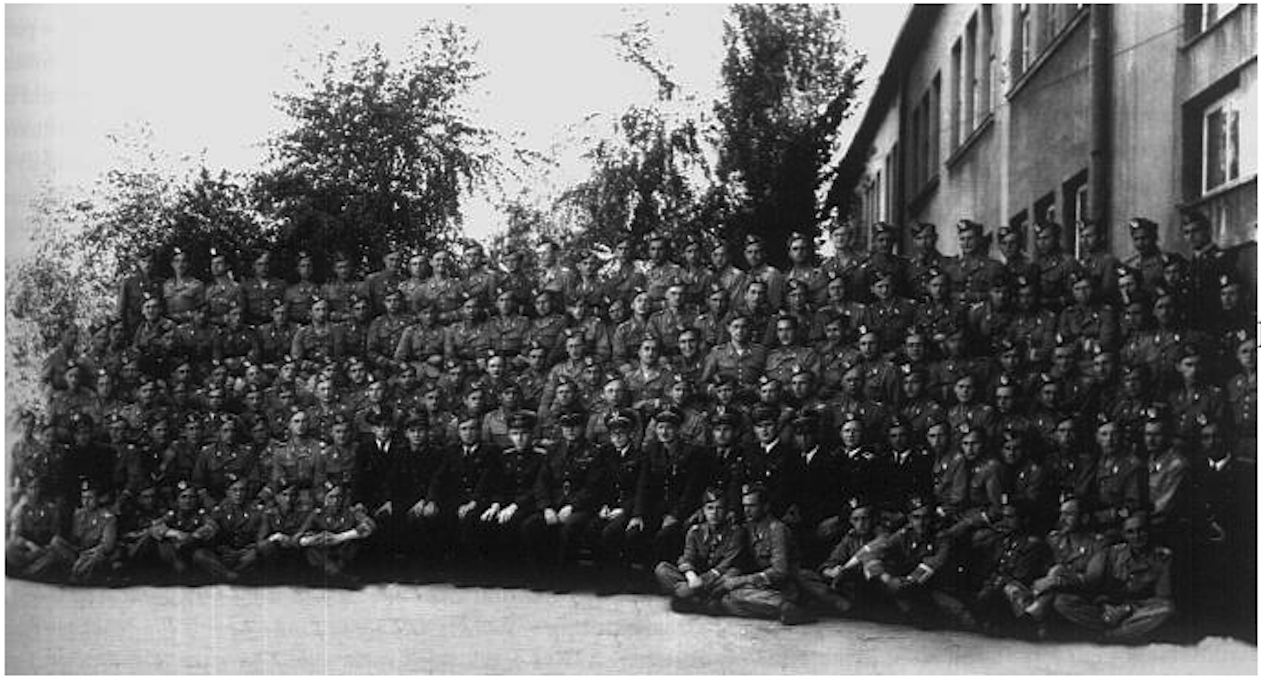
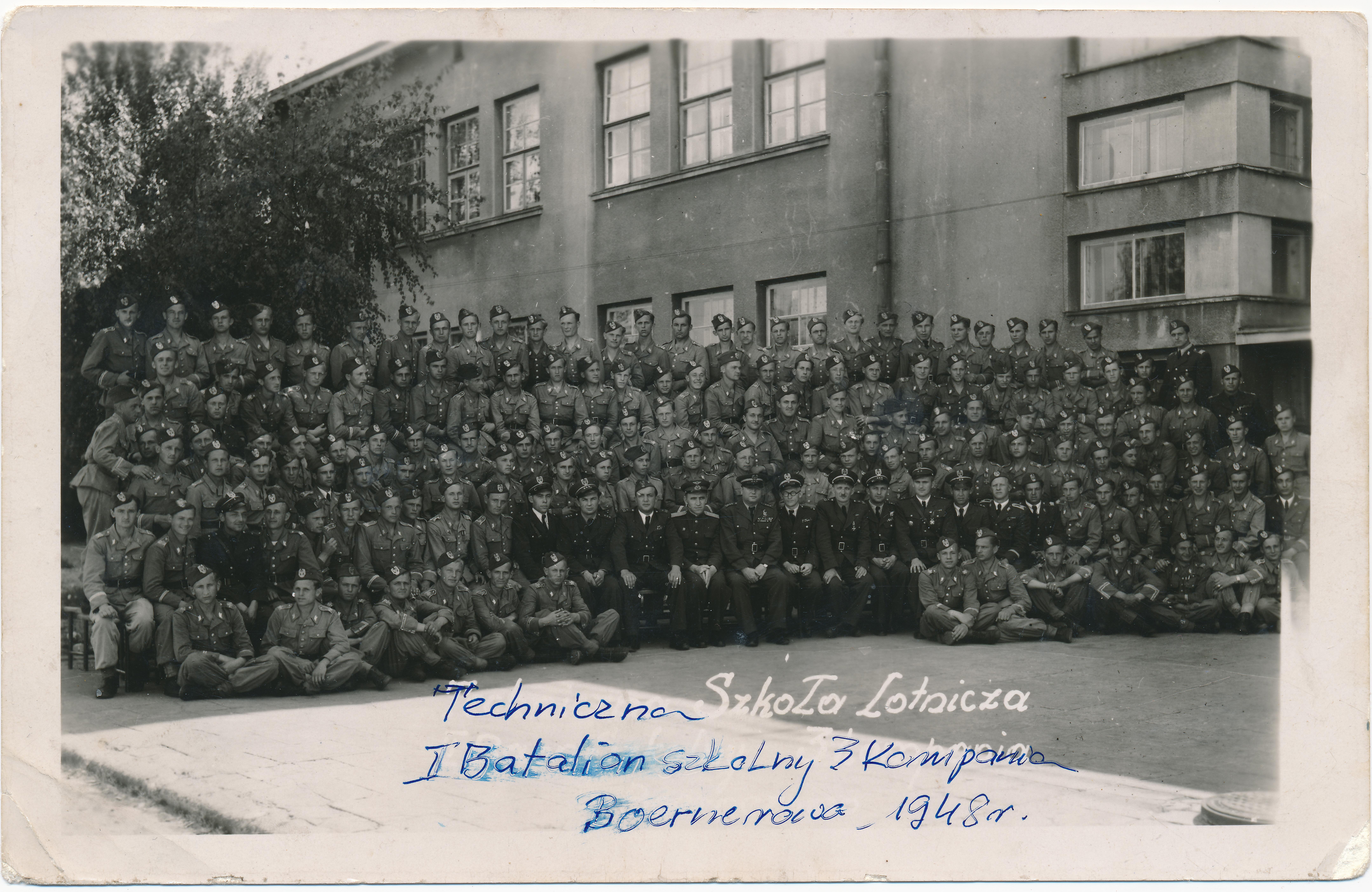
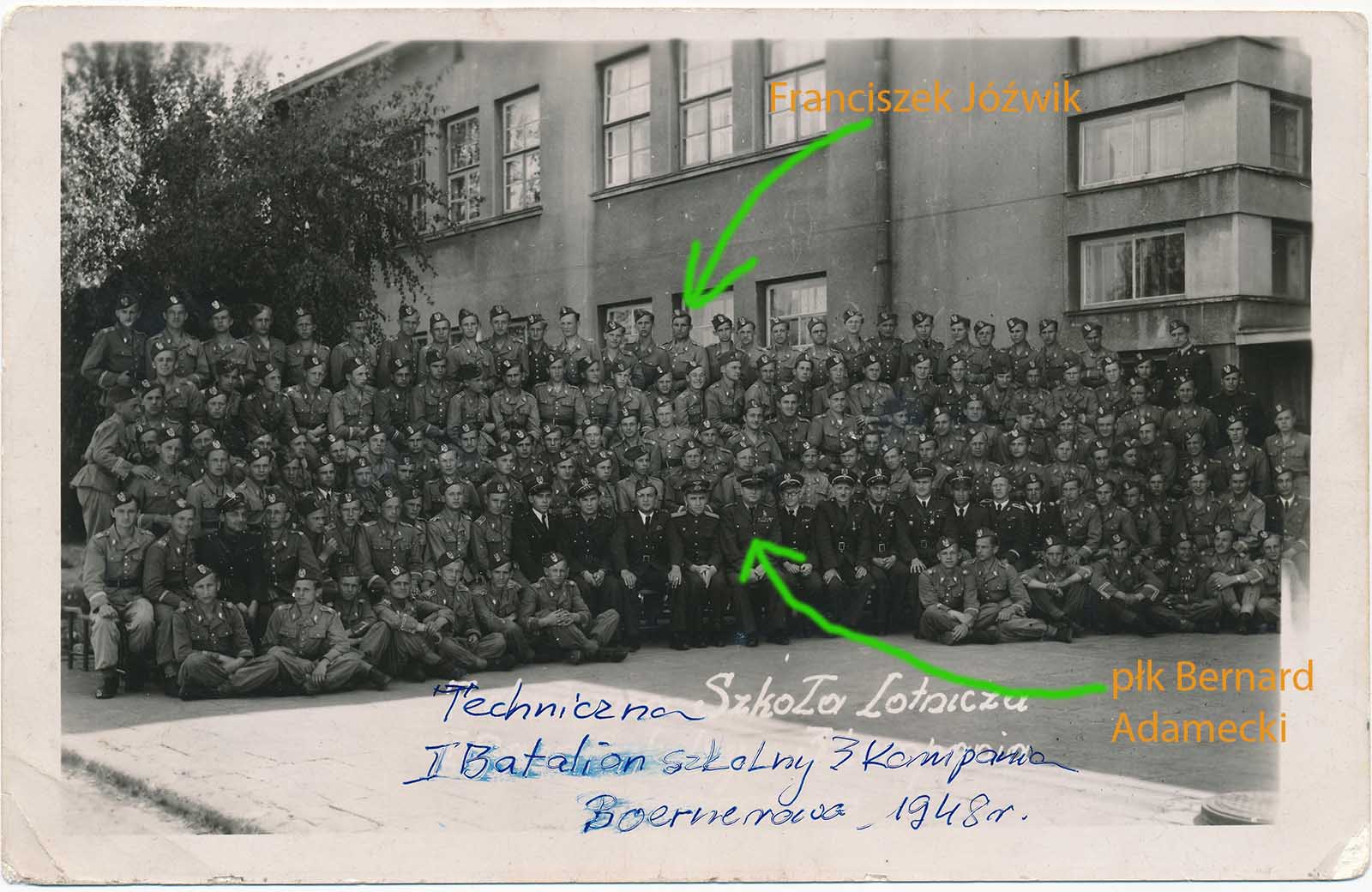
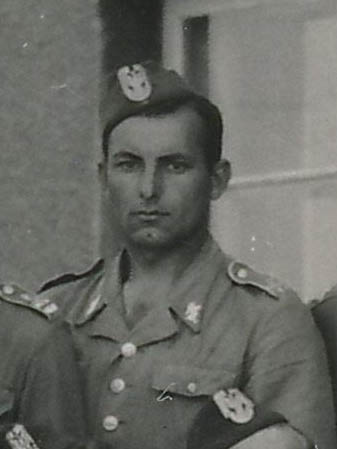
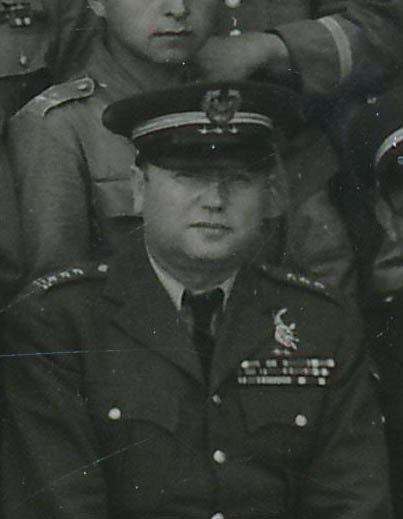
Written by Karol Placha Hetman based on materials sent by Mr. Sławomir Jóźwik
